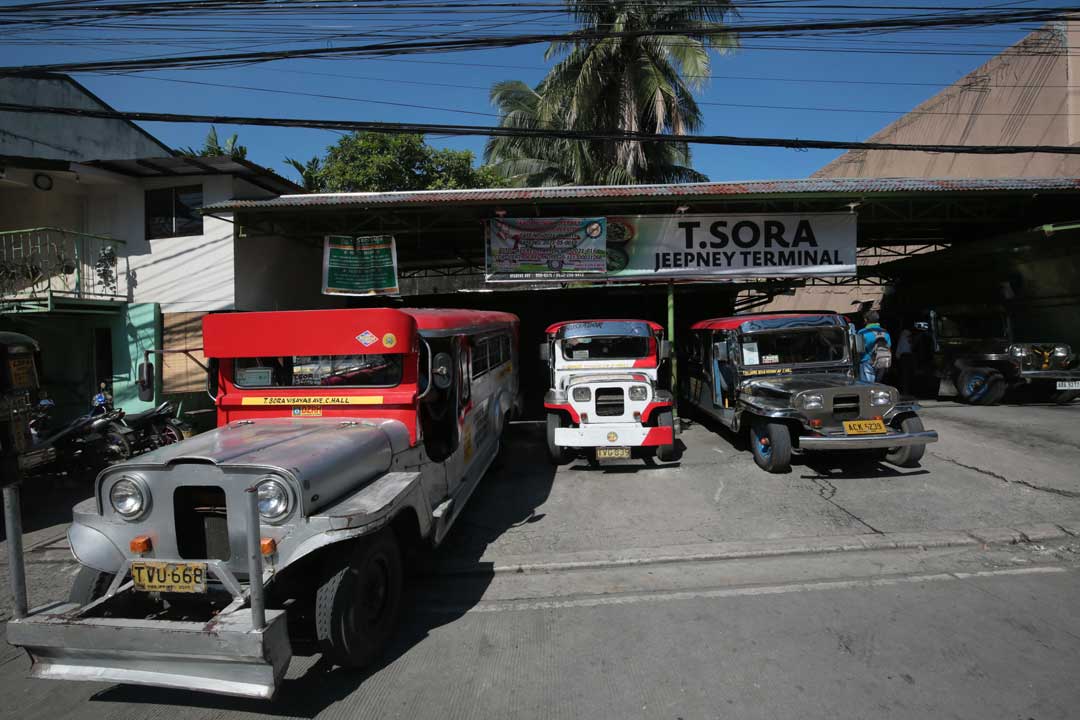Marcos rejects Senate push to suspend jeep modernization plan

PRESIDENT Ferdinand R. Marcos, Jr. on Wednesday rejected a proposal to suspend the government’s jeepney modernization program, denying criticisms that the plan had been rushed.
About 80% of public utility vehicle (PUV) operators have consolidated their franchises under cooperatives or corporations so they can buy new transport vehicles, he told reporters in Pampanga.
“I disagree with them because they said this was rushed,” the President said. “This has been postponed seven times… Those who have been objecting or have been crying out and asking for suspension are in the minority.”
“Are we going to allow the remaining 20% to decide the life of everyone?” he said in Filipino.
Twenty-two senators last week filed a resolution calling for the suspension of the modernization program, saying it had been rushed.
The consolidation rate has hit 83.38%, with the Office of Transport Cooperatives accrediting 1,781 cooperatives with 262,870 members, according to data from the Department of Transportation.
The government is now finishing the route rationalization component, which will determine the number of PUV units to serve on every route.
“Ignoring the Senate’s call for the suspension of the Public Transport Modernization Program reveals a deliberate refusal to acknowledge the suffering caused by this program,” PISTON National President Mody T. Floranda said in a statement.
“It seems this regime’s priorities lie in benefiting businesses and bureaucrats, even if it means burdening hardworking citizens with excessive debts and fares.”
He said the modernization program “can only be truly progressive” if the National Government prioritizes local manufacturers.
“In the face of growing poverty, unemployment and the soaring cost of living, we cannot achieve genuine modernization as long as our leaders prioritize foreign and corporate interests over the well-being of the people,” he added.
Also on Wednesday, Senate President Francis G. Escudero said the chamber is not against the jeepney modernization program, adding that they sought its suspension to prevent ruining the livelihood of drivers and operators.
“Perhaps some sectors have misinterpreted the Senate’s appeal… What we want is for this to be implemented properly and honestly, according to the intention of the modernization itself,” he told a news briefing in Filipino.
Mr. Escudero said there is nothing alarming about the Executive and legislative branches having differences in opinion. “This is our perspective and view… This is called democracy.”
“This is how the relationship between the Executive and legislative branches should be, it cannot be one-sided all the time,” he added.
At the weekend, Transportation Secretary Jaime J. Bautista said suspending the modernization program would waste investments that have been made to roll out the plan.
Mr. Escudero earlier sought to halt the program since operators are finding it difficult to buy expensive modern jeepneys that cost at least P2.6 million.
The deadline for jeepneys to consolidate into cooperatives lapsed on Dec. 31, but public utility vehicles were allowed to keep operating until Jan. 31. The President later extended the deadline to April 30.
The modernization program started in 2017, aiming to replace traditional jeepneys with units that have at least a Euro 4-compliant engine to cut pollution.
Transport groups have asked the Supreme Court to halt the modernization program, which they said is illegal.
“The request for postponement is to revisit the process and determine when it can be implemented comprehensively,” Mr. Escudero said.
“The Senate’s intention is not to stop the program, but to ensure it is executed properly and fairly without harming our drivers who are already struggling.” — Kyle Aristophere T. Atienza and John Victor D. Ordoñez



